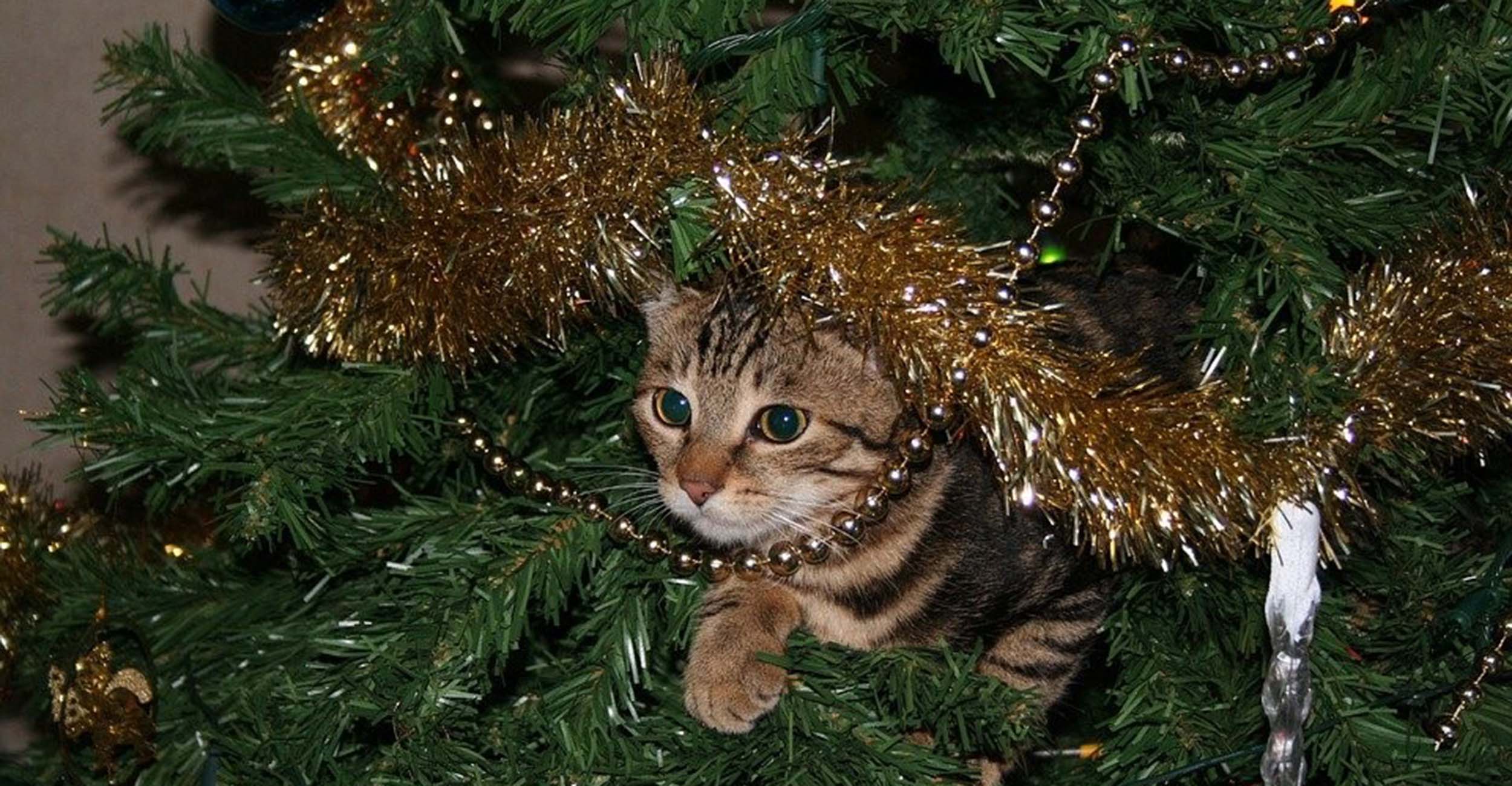
Veterinary Viewpoints: Look out for your pets during holidays
Thursday, December 2, 2021
The holidays are a great time to share some cheer. Sometimes, our four-legged friends feel left out and sometimes they are just curious.
Either way, they may get into some mischief during the holiday season.
The best present you can provide for your family pet is a hazard-free household. While you are working on the pie or turkey and fussing over shopping lists, be aware there are some dangers to pets that come with the holiday season.
Decorations
Decorating your home makes it feel more festive; however, decorations can be enticing traps for pets. Keep ornaments, garland and decorations higher up on trees so they cannot be consumed by pets. When ingested, tinsel can require complex surgery for removal.
Liquid potpourri can cause serious harm to cats and birds. While you may enjoy the aroma, especially if you have an artificial tree, your cat may lick or knock over the dispenser causing burns. Birds are sensitive to the airborne vapors of potpourri.
Christmas tree water, especially when treated with preservatives can cause vomiting. To be safe, eliminate access to this water source.
Electrical Cords
Exposed electric light cords can cause electrocution or oral burns if chewed. Just Google “protect pets from electric cords” for a variety of unique solutions!
Ribbons and Bows
While gift bags are very popular, some gift givers opt to wrap gifts attaching ribbons and/or bows. These beautifully adorned packages are very attractive to cats. Cats are likely to chew the ribbon, which when ingested, can bind up the cat’s intestines and require surgery. Carefully dispose of ribbons and bows when the unwrapping is done.
Holiday Food
Do not give turkey or ham bones to your pets for a holiday treat. These bones can become lodged in your pet’s intestine.
Fruitcake containing raisins and currants may cause upset stomach and worse yet, kidney failure. Fruitcake that has been soaked in rum or other alcohol may lead to intoxication. Pets should not be given egg nog or other alcoholic drinks.
Fatty foods such as meat scraps and drippings, gravy and nuts may cause pancreatitis (inflammation of the pancreas) when ingested.
Chocolate and cocoa are toxic to both dogs and cats. In addition, xylitol, a common sugar substitute used in sugar free gum, candies and baking, is quite toxic to dogs.
Flowers
If chewed and swallowed: poinsettias, mistletoe and lilies are toxic to most household pets. Choose other types of floral arrangements to decorate your home that don’t endanger your pets.
The holidays should be fun for your family and not include an unscheduled trip to the veterinary clinic. However, if you need us, Oklahoma State University’s Veterinary Medical Hospital is open 24 hours for emergency care. Call 405-744-7000 to alert the team you are on the way.
About the author: Paul DeMars, DVM, DABVP Canine/Feline, is an associate professor in the Department of Veterinary Clinical Sciences. Dr. DeMars specializes in community practice, which is open to the public.
Veterinary Viewpoints is provided by the faculty of the OSU Veterinary Medical Teaching Hospital. Certified by the American Animal Hospital Association, the hospital is open to the public providing routine and specialized care for all species and 24-hour emergency care, 365 days a year. Call 405-744-7000 for an appointment or more information.
OSU’s College of Veterinary Medicine is one of 32 accredited veterinary colleges in the United States and the only veterinary college in Oklahoma. The college’s Boren Veterinary Medical Hospital is open to the public and provides routine and specialized care for small and large animals. The hospital offers 24-hour emergency care and is certified by the American Animal Hospital Association. For more information, visit https://vetmed.okstate.edu or call 405-744-7000.
